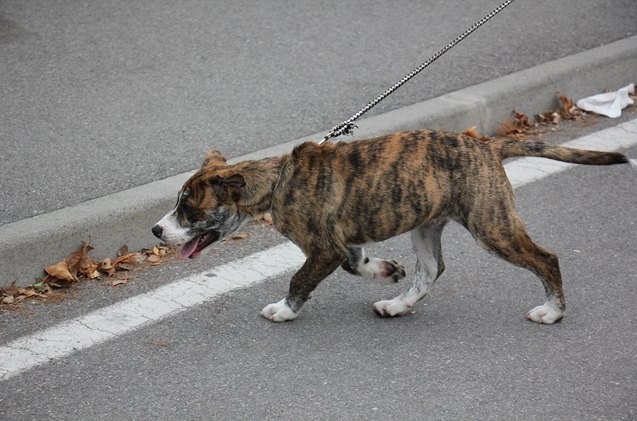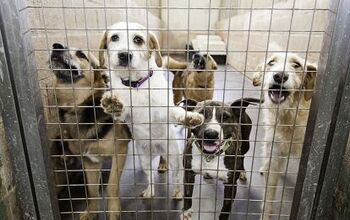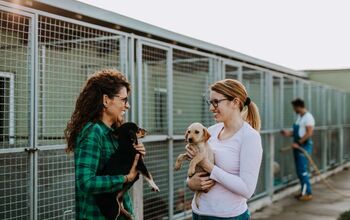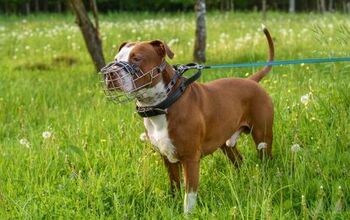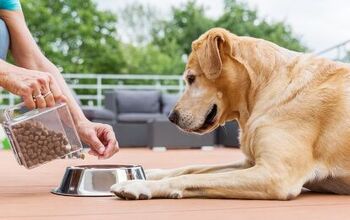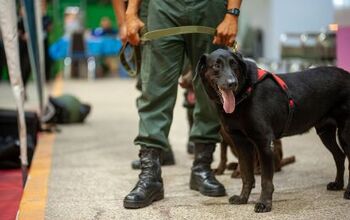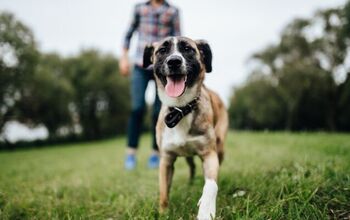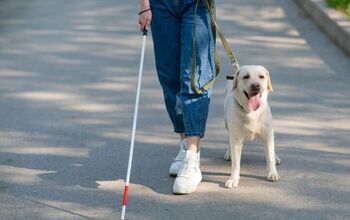Tidy Tips on Curb Training in the Big City

You’re strolling down the sidewalk, on your way to work, or to meet a friend, or maybe you’re out for a walk with your dog. Suddenly… SQUISH! You’ve just stepped in a huge pile of dog doo – GROSS! Why didn’t that dog’s owner pick up after his dog did his business… or better yet, take them to the curb and out of the way of pedestrians? Did you know that most cities have “poop and scoop” laws? That means if you refuse to pick up after your dog, you could get charged with a fine. And there are even a few enterprising towns that will DNA test the poop and track you down!
If you live in an urban area, it’s a good idea to curb train your dog. Never heard of curb training? Let’s go over the basics, and how you can start curb training your dog today.
Related: One Man’s Brave Quest to Ensure No Poo is Left Behind
What is Curb Training?
In large metropolitan areas, green space is limited and most people aren’t fortunate enough to have a yard. Even if you live within walking distance of a park, you probably won’t make that trek every time your dog needs to do his business. To keep problems with pet waste from getting out of control, most major cities have implemented a curb training policy. Curb training simply involves teaching your dog to do his business in the street right next to the curb rather than on the sidewalk.
Unlike sidewalks, which are an extension of someone’s property, the street is city property and it is cleaned regularly with street sweeping. Property owners are responsible for clearing away snow and keeping the sidewalk safe, but it’s not their responsibility to clean up after other people’s pets. Even if you do pick up after your dog, there will sometimes be evidence left behind… and no one wants to step in that. Curbing your dog keeps the mess away from pedestrians and it ensures that if there is a mess left behind, the street sweeper will take care of it.
Related: New York’s Potential Dog Poop Problem Will Scare The Crap Out Of You
Tips for Curb Training Your Dog
The key to success with any kind of dog training – whether you are teaching him to fetch or to poop in the street – is to start early. If you allow your puppy to eliminate on the sidewalk or in flower beds when he is young but then expect him to do something else when he gets older, you’ll have a hard time working against his ingrained habits. Your best bet is to curb train him from the start so his automatic response is to relieve himself next to the curb.
To help make sure that your dog is used to curb training, always reward your dog for doing what you want him to do. When you first start curb training, you might have to physically lift your dog and transport him to the street. This is so he doesn’t squat along the way, and you don’t want him to wander back onto the sidewalk until he’s done. As soon as he finishes, praise him for good behavior and offer him a treat. Dogs will do anything for food, so if they learn that a certain behavior earns them a treat, they’ll be eager to repeat that behavior.
In addition to curb training your dog in general, there are a few rules for etiquette that you should follow.
- When possible, try to curb your dog between two parked cars. This way if your dog leaves a bit of a mess behind you won’t be forcing someone else to walk through it.
- Keep your dog on a short leash at all times when he is out of the house so you have better control over him.
- Always keep a close eye on your dog and be very careful around moving vehicles.
If you live in a big city, don’t be a bad neighbor – make sure your dog is curb trained. And you still need to pick up that poop, even if it is on the curb. Keeping your city clean and poop-free is in everyone’s best interest!

Kate Barrington is the loving owner of two cats (Bagel and Munchkin) and a noisy herd of guinea pigs. Having grown up with golden retrievers, Kate has a great deal of experience with dogs but labels herself a lover of all pets. Having received a Bachelor's degree in English, Kate has combined her love for pets and her passion for writing to create her own freelance writing business, specializing in the pet niche.
More by Kate Barrington



